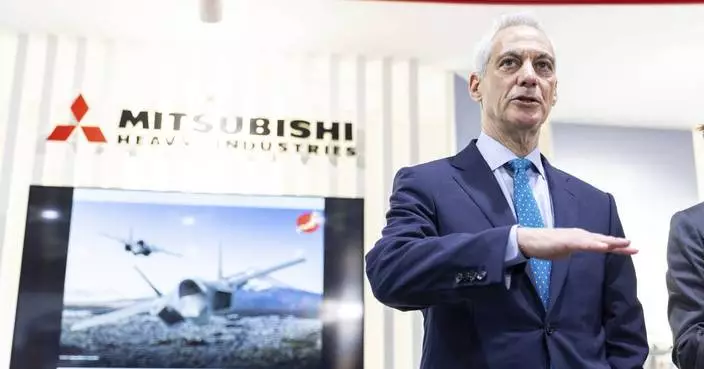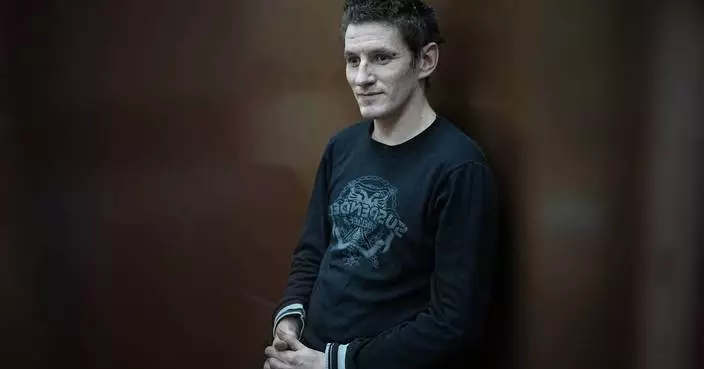The Trump administration is threatening to cut funding for a Middle East studies program run by the University of North Carolina and Duke University, arguing that it's misusing a federal grant to advance "ideological priorities" and unfairly promote "the positive aspects of Islam" but not Christianity or Judaism.
An Aug. 29 letter from the U.S. Education Department orders the Duke-UNC Consortium for Middle East Studies to revise its offerings by Sept. 22 or risk losing future funding from a federal grant that's awarded to dozens of universities to support foreign language instruction. The consortium received $235,000 from the grant last year, according to Education Department data.
Officials at Duke and at UNC-Chapel Hill, which houses the consortium, declined to comment. The Education Department declined to say if it's examining similar programs at other schools.
Academic freedom advocates say the government could be setting a dangerous precedent if it injects politics into funding decisions. Some said they had never heard of the Education Department asserting control over such minute details of a program's offerings.
"Is the government now going to judge funding programs based on the opinions of instructors or the approach of each course?" said Henry Reichman, chairman of a committee on academic freedom for the American Association of University Professors. "The odor of right wing political correctness that comes through this definitely could have a chilling effect."
More than a dozen universities receive National Resource Center grants for their Middle East programs, including Columbia, Georgetown, Yale and the University of Texas. The Duke-UNC consortium was founded in 2005 and first received the grant nearly a decade ago.
Education Secretary Betsy DeVos ordered an investigation into the program in June after North Carolina Rep. George Holding, a Republican, complained that it hosted a taxpayer-funded conference with "severe anti-Israeli bias and anti-Semitic rhetoric." In a response to Holding, DeVos said she was "troubled" by his letter and would take a closer look at the consortium.
The department's findings did not directly address any bias against Israel but instead evaluated whether the consortium's proposed activities met the goals of the National Resource Center program, which was created in 1965 to support language and culture initiatives that prepare students for careers in diplomacy and national security.
Investigators concluded that the consortium intended to use federal money on offerings that are "plainly unqualified for taxpayer support," adding that foreign language and national security instruction have "taken a back seat to other priorities." The department cited several courses, conferences and academic papers that it says have "little or no relevance" to the grant's goals.
"Although a conference focused on 'Love and Desire in Modem Iran' and one focused on Middle East film criticism may be relevant in academia, we do not see how these activities support the development of foreign language and international expertise for the benefit of U.S. national security and economic stability," the letter said.
Investigators also saw a disconnect between the grant's mission and some academic papers by scholars at the consortium. They objected to one paper titled "Performance, Gender-Bending and Subversion in the Early Modern Ottoman Intellectual History," and another titled "Radical Love: Teachings from Islamic Mystical Tradition."
The letter accused the consortium of failing to provide a "balance of perspectives" on religion. It said there is "a considerable emphasis" placed on "understanding the positive aspects of Islam, while there is an absolute absence of any similar focus on the positive aspects of Christianity, Judaism or any other religion or belief system in the Middle East."
It added that there are few offerings on discrimination faced by religious minorities in the Middle East, "including Christians, Jews, Baha'is, Yadizis, Kurds, Druze and others." Department officials said the grant's rules require programs to provide a "full understanding" of the regions they study.
Jay Smith, a history professor at UNC and vice president of its chapter of the American Association of University Professors, said the letter amounts to "ideologically driven harassment." He said the Education Department official who signed the letter, Robert King, "should stay in his lane and allow the experts to determine what constitutes a 'full understanding' of the Middle East."
But Holding, the Republican who sparked the investigation, said it's clear the consortium stepped outside the bounds of the grant. The Education Department has an obligation to ensure its funding is used as intended, he said, adding that other schools should make sure they're following the rules.
"This has fallen through the cracks, and this could be going on at other educational institutions," he said in an interview. "If the department's providing the money and giving guidance on how the money is to be used, I think they can be as in the weeds as they need to be."
The National Resource Center grant program provided a total of $22 million to language programs at about 40 universities last year. Of that total, about $3.5 million was for Middle East programs.
Along with its objection to the nature of the UNC-Duke offerings, the department also said it's concerned that, out of 6,800 students enrolled in the consortium's courses, just 960 were enrolled in Middle East language classes, and that only 11% of the program's graduates pursue careers in government, while 35% takes jobs in academia.
Department officials instructed the consortium to provide a "revised schedule of activities" for the next year and to explain how each offering promotes foreign language learning and advances national security interest.
Follow Collin Binkley on Twitter at https://twitter.com/cbinkley
PARIS (AP) —
Reuters photographer Mohammed Salem captured this year’s prestigious World Press Photo of the Year award Thursday with a depiction of loss and sorrow in Gaza, a heartrending photo of a Palestinian woman cradling the body of her young niece. The photograph, taken in Khan Younis just days after Salem’s own child was born, shows 36-year-old Inas Abu Maamar holding five-year-old Saly, who was killed along with her mother and sister when an Israeli missile struck their home.
Salem, who is Palestinian, described this photo filed Nov. 2 last year, as a “powerful and sad moment that sums up the broader sense of what was happening in the Gaza Strip.”
The image ”truly encapsulates this sense of impact,” said global jury chair Fiona Shields, The Guardian newspaper's head of photography. “It is incredibly moving to view and at the same time an argument for peace, which is extremely powerful when peace can sometimes feel like an unlikely fantasy,” she added.
The World Press Photo jury praised the shot’s sense of care and respect and its offering of a “metaphorical and literal glimpse into unimaginable loss.”
This is not the first time Salem has been recognized for his work on the Israeli-Palestinian conflict; he received a World Press Photo award more than a decade ago for another depiction of the human toll of conflict in the Gaza strip.
In the three other global categories announced Thursday, South Africa’s Lee-Ann Olwage won Photo Story of the Year for her touching series “Valim-babena,” featured in GEO magazine. The project focused on the stigmatization of dementia in Madagascar, a topic she explored through intimate portraits of “Dada Paul” and his family. Lack of public awareness surrounding dementia means that people displaying symptoms of memory loss are often stigmatized.
In the series, “Dada Paul,” who has lived with dementia for 11 years, is tenderly cared for by his daughter Fara. One of the standout images in the series shows him preparing for church with his granddaughter Odliatemix, capturing moments of normalcy and warmth amidst the challenges of dementia.
Photographer Alejandro Cegarra, a Venezuelan native who migrated to Mexico in 2017, won the Long-Term Project award for “The Two Walls,” published by The New York Times and Bloomberg. Cegarra’s project, initiated in 2018, examines a shift in Mexico’s immigration policies, which have moved from being historically open to enforcing strict regulations at its southern border. The jury said the photographer's perspective as a migrant gave it a “sensitive," human-centered perspective, according to a press release.
Julia Kochetova of Ukraine won the Open Format award for “War Is Personal.” The project stood out from coverage of the ongoing conflict by offering a personal look at the harsh realities of war. On a dedicated website, she merged traditional photojournalism with a diary-like documentary style, incorporating photography, poetry, audio clips and music.
The Associated Press won the Open Format award in the regional Africa category with the multimedia story “Adrift,” created by journalists Renata Brito and Felipe Dana. The story investigates the fate of West African migrants who attempted to reach Europe via a treacherous Atlantic route but ended up on a ghost ship discovered off Tobago. The team’s compelling use of photography, cinematography and detailed narrative, enhanced by expert design and multimedia elements, highlights the perils faced by migrants and the human stories behind global migration issues.
The Associated Press' Ebrahim Noroozi won the Asia Stories award for his series “Afghanistan on the Edge,” which documents the country since the Taliban took over in August 2021.
World Press Photo is an independent, nonprofit organization based in the Netherlands, founded in 1955.
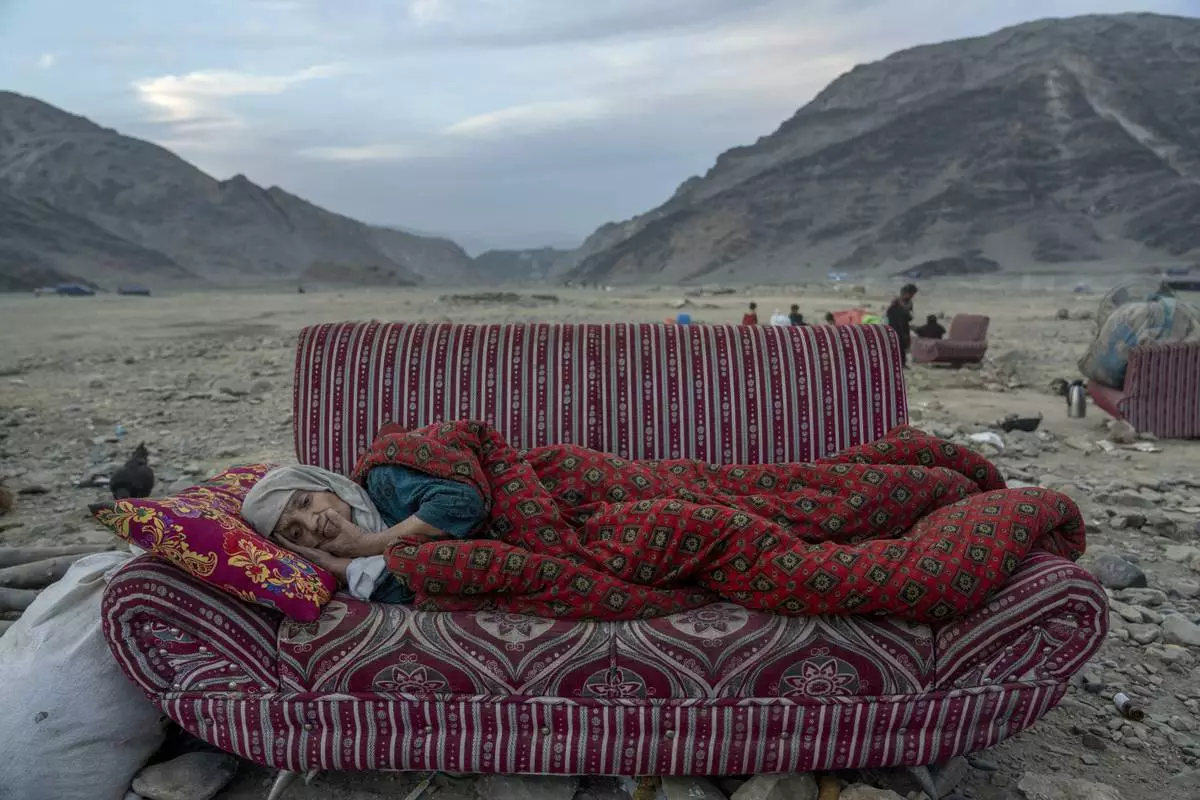
This image provided by World Press Photo is part of a series titled Afghanistan on the Edge by Ebrahim Noroozi, Associated Press, which won the World Press Photo Asia Series category and showsAn Afghan refugee rests in the desert next to a camp near the Torkham Pakistan-Afghanistan border, in Torkham, Afghanistan, Friday, Nov. 17, 2023. A huge number of Afghans refugees entered the Torkham border to return home hours before the expiration of a Pakistani government deadline for those who are in the country illegally to leave or face deportation. (AP Photo/Ebrahim Noroozi)
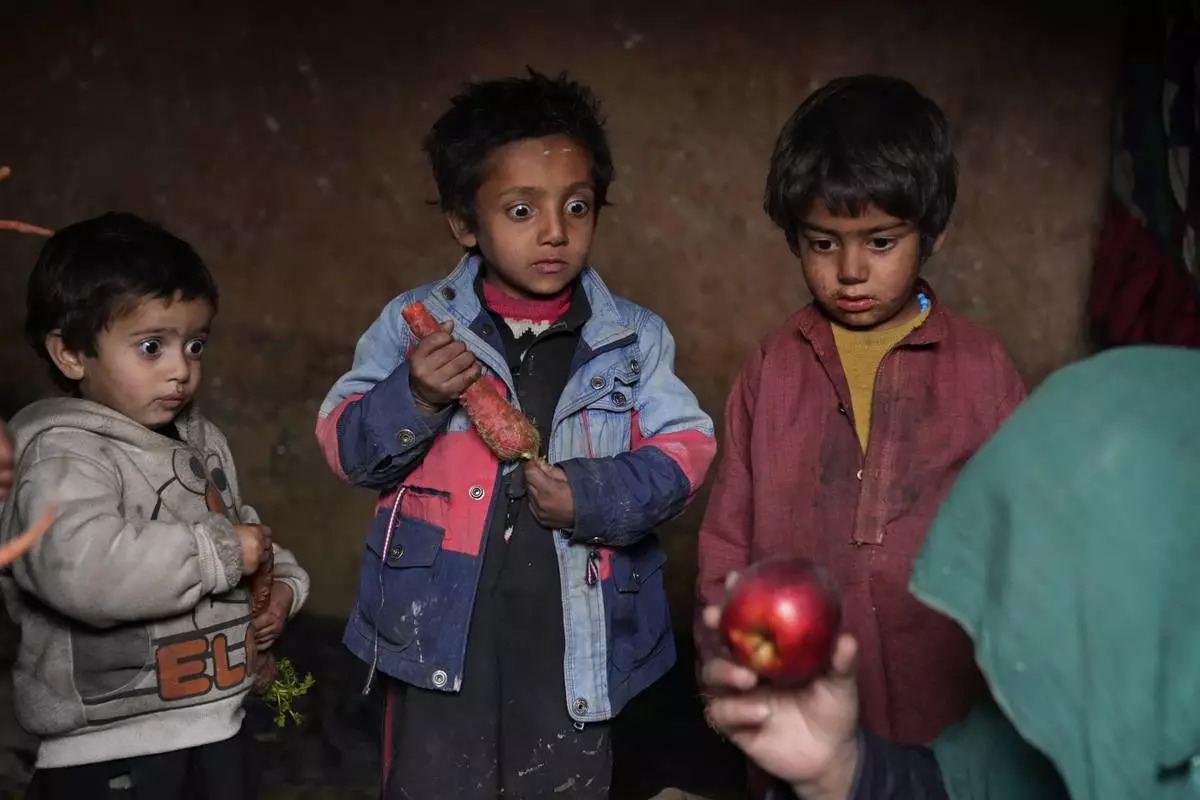
This image provided by World Press Photo is part of a series titled Afghanistan on the Edge by Ebrahim Noroozi, Associated Press, which won the World Press Photo Asia Series category and shows : Since the chaotic Taliban takeover of Kabul on Aug. 15, 2021, an already war-devastated economy once kept alive by international donations alone is now on the verge of collapse. There isn't enough money for hospitals. The World Health Organization is warning of millions of children suffering malnutrition, and the U.N. says 97% of Afghans will soon be living below the poverty line. Three Afghan internally displaced children look with surprise at an apple that their mother brought home after begging, in a camp on the outskirts of Kabul, Afghanistan, Thursday, Feb 2, 2023. (AP Photo/Ebrahim Noroozi)
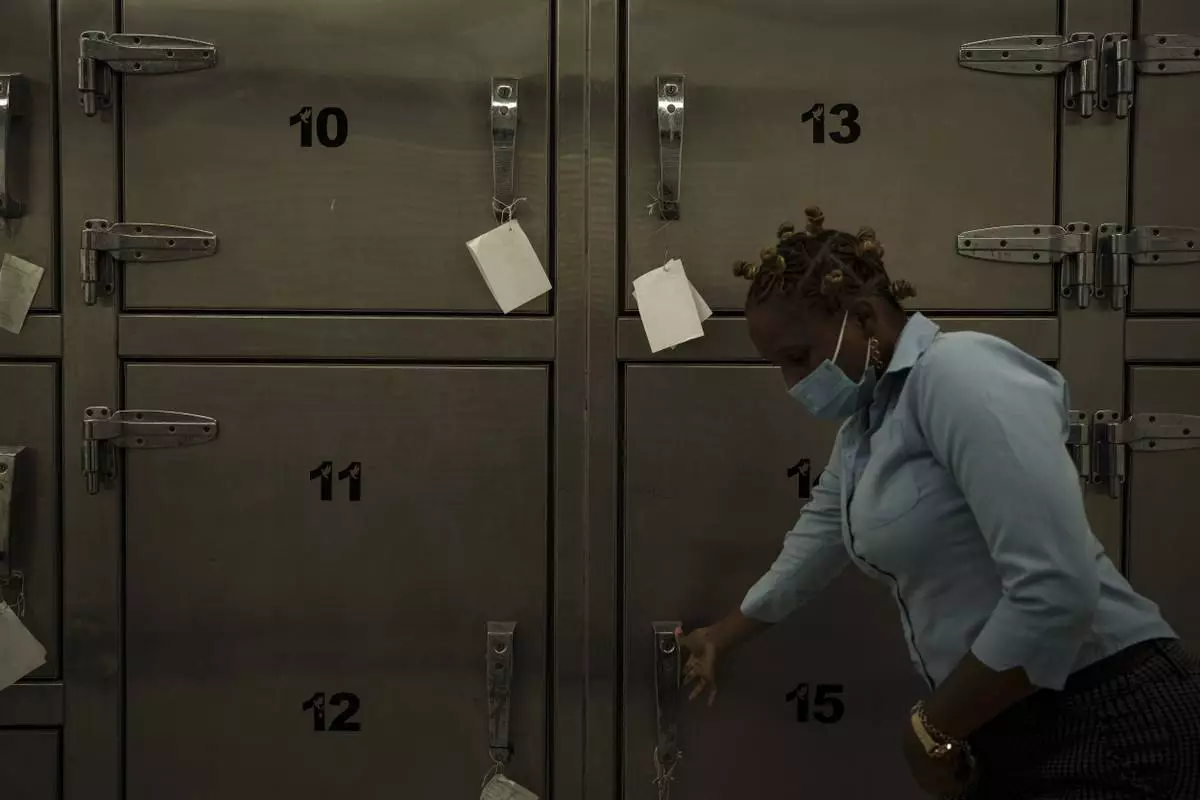
This image provided by World Press Photo is part of a multimedia project by Associated Press' Renata Brito and Felipe Dana titled Adrift, won the World Press Photo Africa Regional Winner Open Format category and shows a mortuary technician opening the door of a refrigerator used to store the remains of migrants recovered from inside the Mauritania boat that appeared drifting near the island of Tobago, in Scarborough, Trinidad and Tobago, Tuesday, Jan. 25, 2022. In May 2021 a boat from Mauritania full of dead men was found off the coast of the Caribbean Island of Tobago. Who were these men and why were they on the other side of the Atlantic Ocean? Two visual journalists sought answers, uncovering a story about migrants from West Africa who seek opportunity in Europe via an increasingly popular but treacherous Atlantic route. (AP Photo/Felipe Dana)
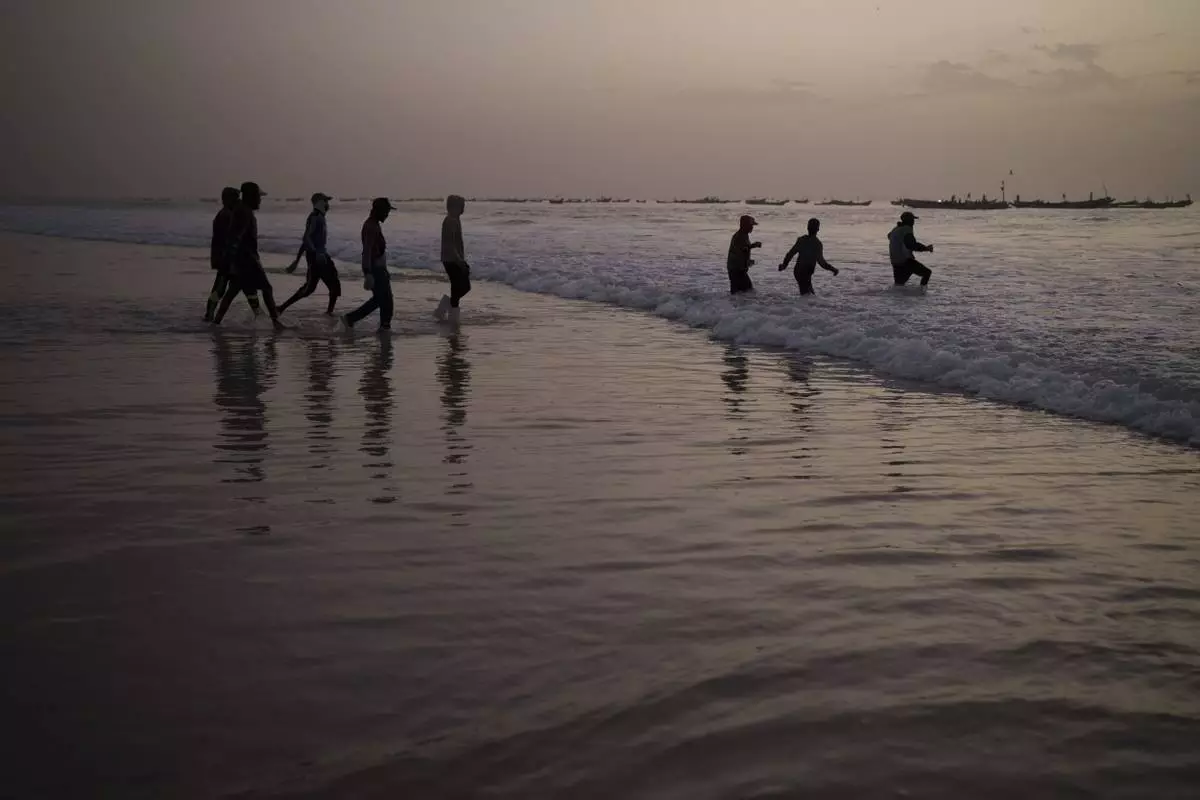
This image provided by World Press Photo is part of a multimedia project by Associated Press' Renata Brito and Felipe Dana titled Adrift, won the World Press Photo Africa Regional Winner Open Format category and shows young fishermen walk into the ocean to board an artisanal fishing boat in Nouakchott, Mauritania, Friday, Dec. 10, 2021. In May 2021 a boat from Mauritania full of dead men was found off the coast of the Caribbean Island of Tobago. Who were these men and why were they on the other side of the Atlantic Ocean? Two visual journalists sought answers, uncovering a story about migrants from West Africa who seek opportunity in Europe via an increasingly popular but treacherous Atlantic route. (AP Photo/Felipe Dana)
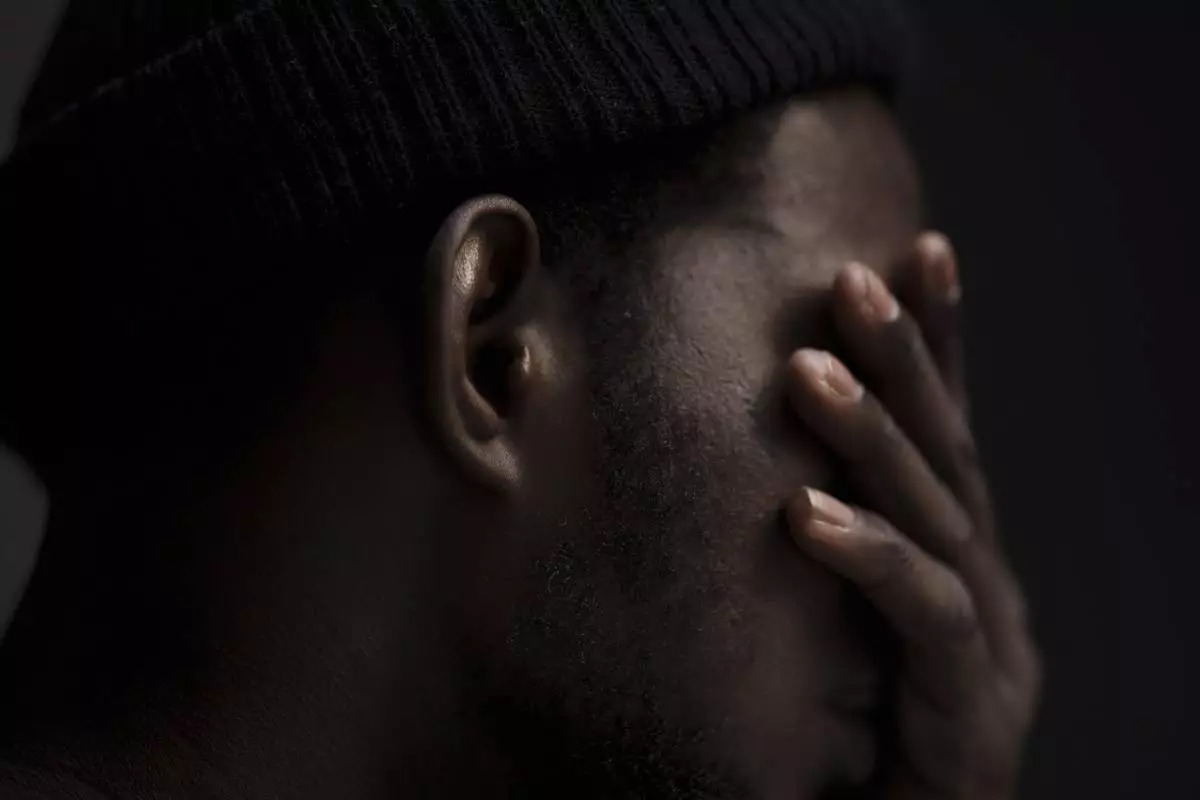
This image provided by World Press Photo is part of a multimedia project by Associated Press' Renata Brito and Felipe Dana titled Adrift, won the World Press Photo Africa Regional Winner Open Format category and shows Moussa Sako, an asylum-seeker from Mali, who survived 22 days aboard a Mauritanian boat drifting in the Atlantic Ocean covers his face during an interview with the Associated Press in Guadalajara, Spain, Sunday, Nov. 14, 2021. In May 2021 a boat from Mauritania full of dead men was found off the coast of the Caribbean Island of Tobago. Who were these men and why were they on the other side of the Atlantic Ocean? Two visual journalists sought answers, uncovering a story about migrants from West Africa who seek opportunity in Europe via an increasingly popular but treacherous Atlantic route. (AP Photo/Felipe Dana)
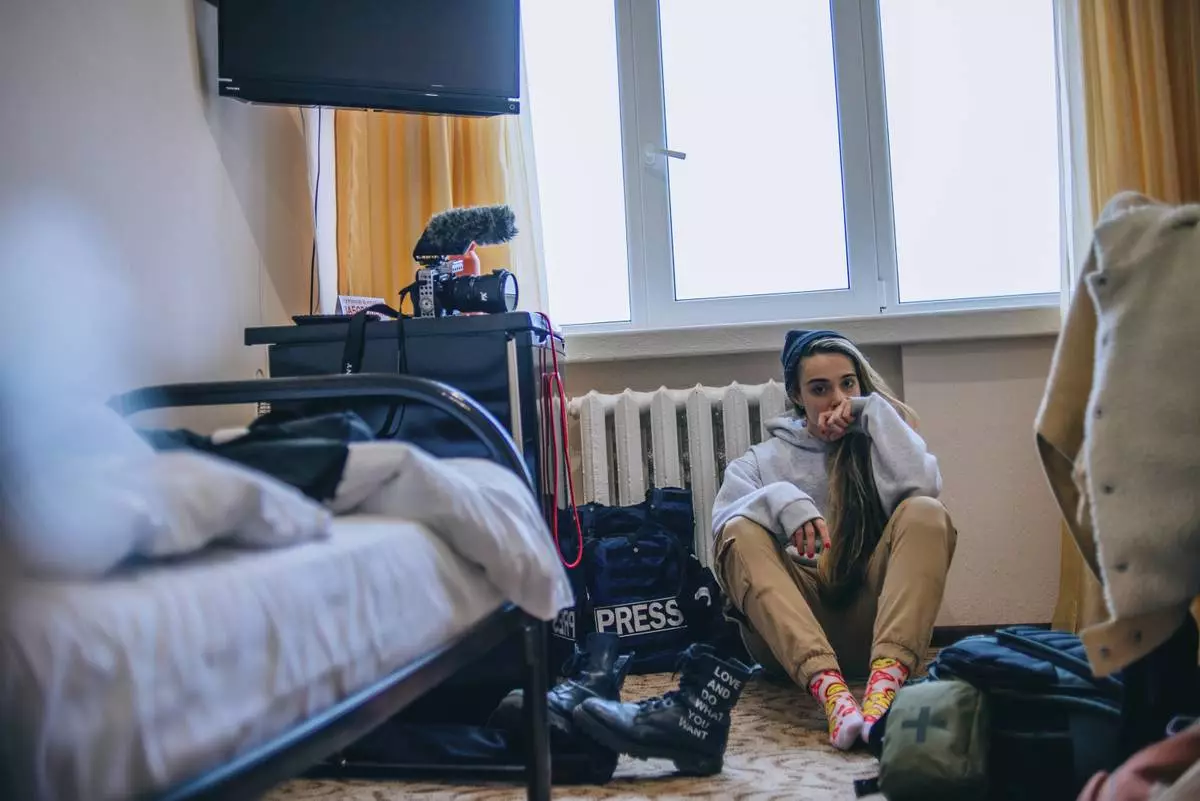
This image provided by World Press Photo and taken by Julia Kochetova is part of a series titled War is Personal which won the World Press Photo Open Format Award. Amidst tens of thousands of civilian and military casualties and an effective stalemate that has lasted for months, there are no signs of peace on the horizon for Russia's war in Ukraine. While news media updates its audience with statistics and maps, and international attention drifts elsewhere, the photographer has created a personal website that brings together photojournalism with the personal documentary style of a diary to show the world what it is like to live with war as an everyday reality. (Julia Kochetova/World Press Photo via AP)
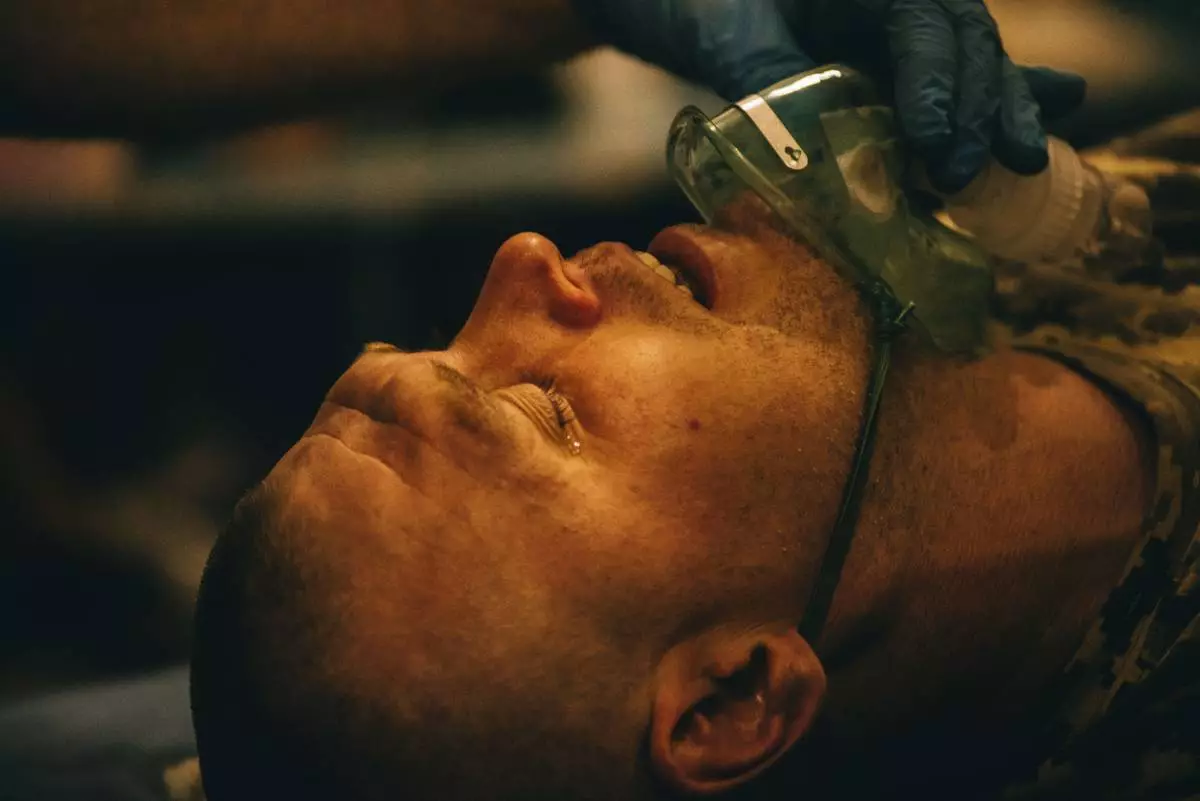
This image provided by World Press Photo and taken by Julia Kochetova is part of a series titled War is Personal which won the World Press Photo Open Format Award and shows a stabilization point near Bakhmut, Ukraine, of the 5th assault brigade and 77th brigade. Hospitalliers battalion - volunteer battalion of combat medics are helping here. Amidst tens of thousands of civilian and military casualties and an effective stalemate that has lasted for months, there are no signs of peace on the horizon for Russia's war in Ukraine. While news media updates its audience with statistics and maps, and international attention drifts elsewhere, the photographer has created a personal website that brings together photojournalism with the personal documentary style of a diary to show the world what it is like to live with war as an everyday reality. (Julia Kochetova/Der Spiegel/World Press Photo via AP)
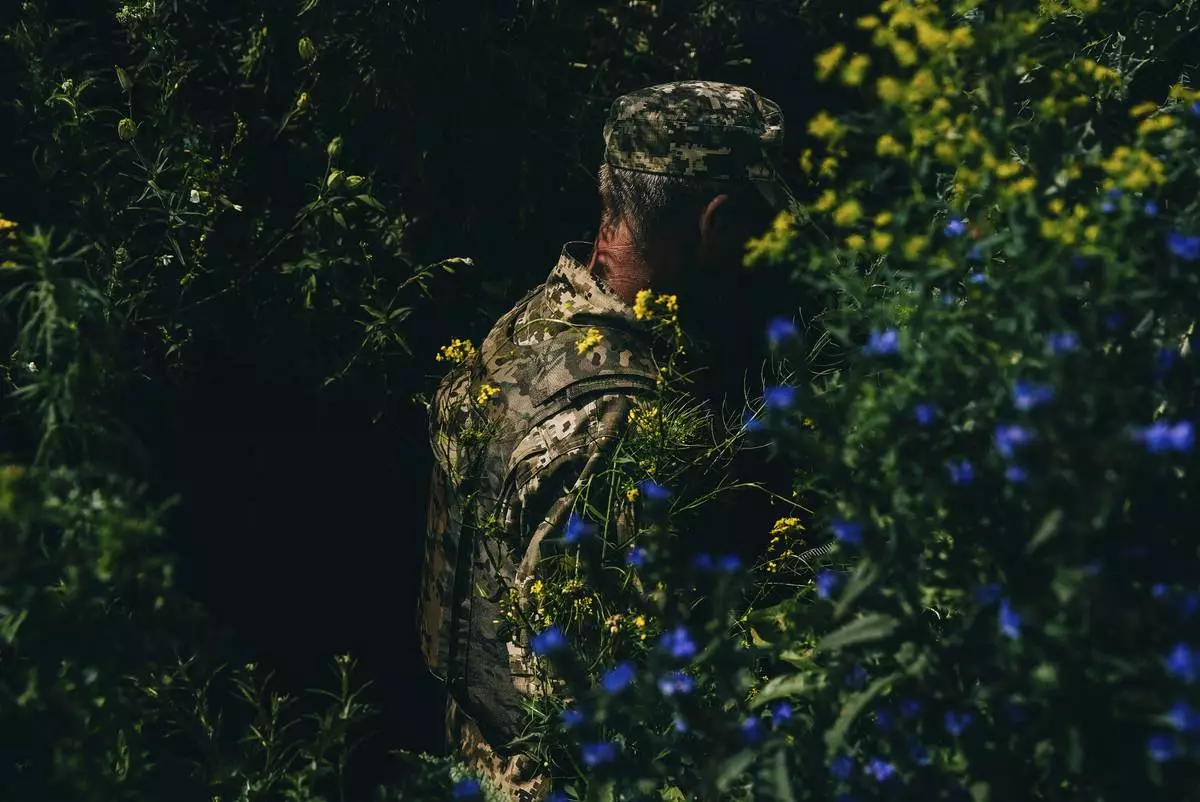
This image provided by World Press Photo and taken by Julia Kochetova is part of a series titled War is Personal which won the World Press Photo Open Format Award and shows the training of mobilized conscripts of 68th brigade in Donetsk region, not far from frontline. 68th brigade recently liberated Blagodatne village during the Ukrainian counter-offensive. The instructors came from US, working for NGO "Saber".Amidst tens of thousands of civilian and military casualties and an effective stalemate that has lasted for months, there are no signs of peace on the horizon for Russia's war in Ukraine. While news media updates its audience with statistics and maps, and international attention drifts elsewhere, the photographer has created a personal website that brings together photojournalism with the personal documentary style of a diary to show the world what it is like to live with war as an everyday reality. (Julia Kochetova/Der Spiegel/World Press Photo via AP)
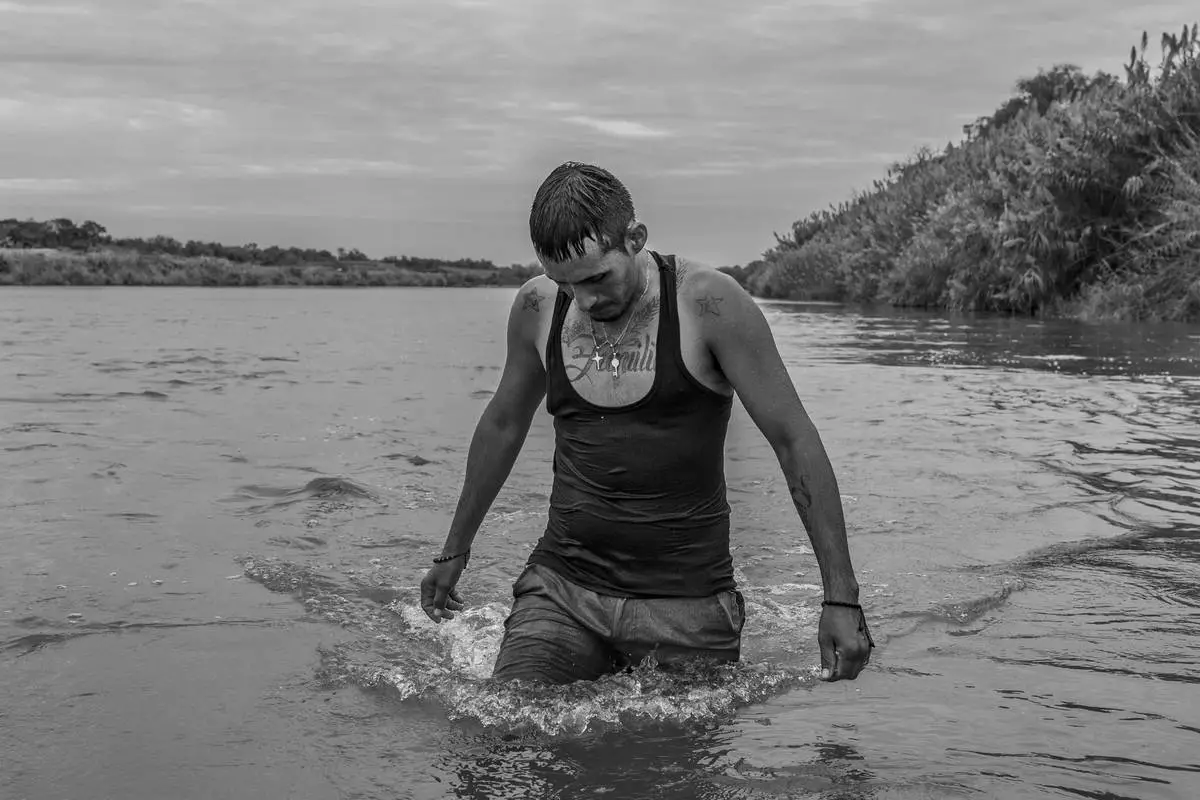
This image provided by World Press Photo and taken by Alejandro Cegarra for The New Times/Bloomberg is part of a series titled The Two Walls which won the World Press Photo Long-Term Project Award and shows Carlos Mendoza, a Venezuelan migrant, crossing the Rio Grande river to seek asylum in the United States. Piedras Negras, Mexico, 7 October 2023. (Alejandro Cegarra/The New York Times/Bloomberg/World Press Photo via AP)
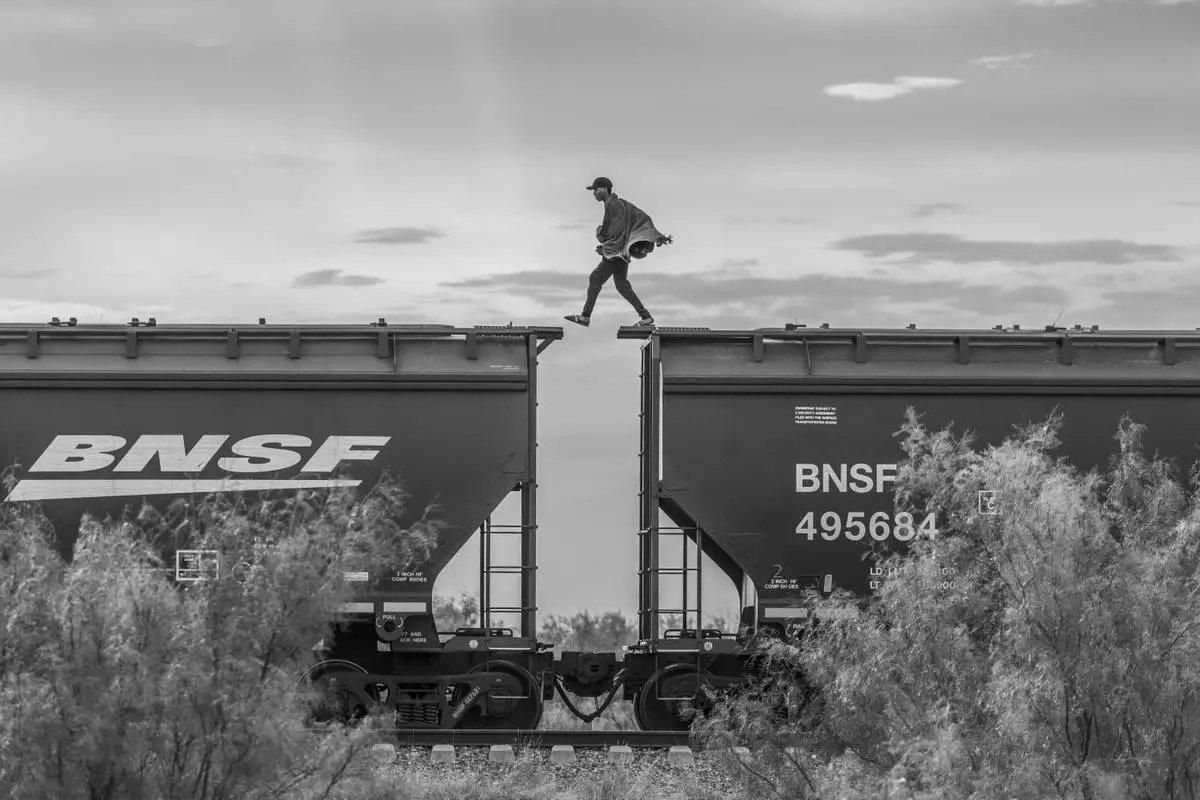
This image provided by World Press Photo and taken by Alejandro Cegarra for The New Times/Bloomberg is part of a series titled The Two Walls which won the World Press Photo Long-Term Project Award and shows a migrant walking atop a freight train known as "The Beast." Migrants and asylum seekers lacking the financial resources to pay a smuggler often resort to using cargo trains to reach the United States border. This mode of transportation is very dangerous; over the years, hundreds have fallen onto the tracks and have been killed or maimed. Piedras Negras, Mexico, 8 October 2023. (Alejandro Cegarra/The New York Times/Bloomberg/World Press Photo via AP)
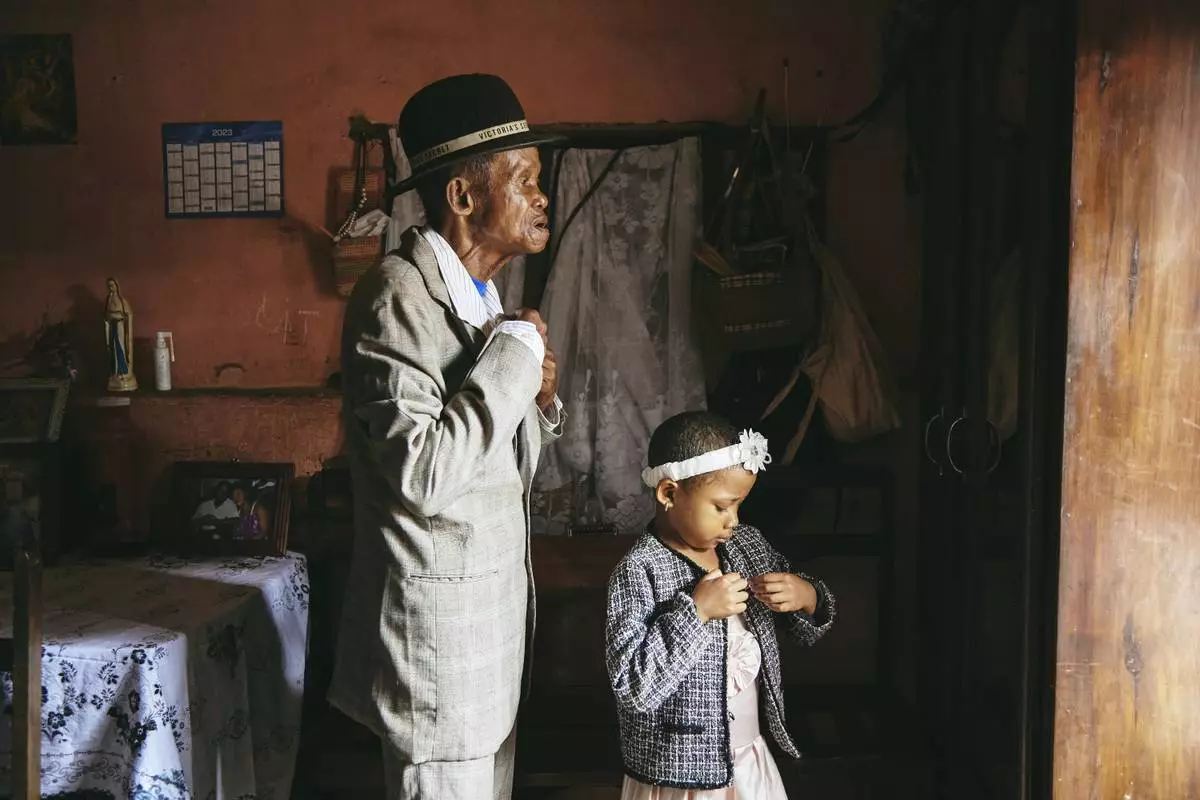
This image provided by World Press Photo and taken by Lee-Ann Olwage for GEO is part of a series titled Valim-babena which won the World Press Photo Story of the Year Award and shows Dada Paul Rakotazandriny (91), who is living with dementia, and his granddaughter, Odliatemix Rafaraniriana (5), get ready for church on Sunday morning at his home in Antananarivo, Madagascar. 12 March 2023. (Lee-Ann Olwage/Geo/World Press Photo via AP)
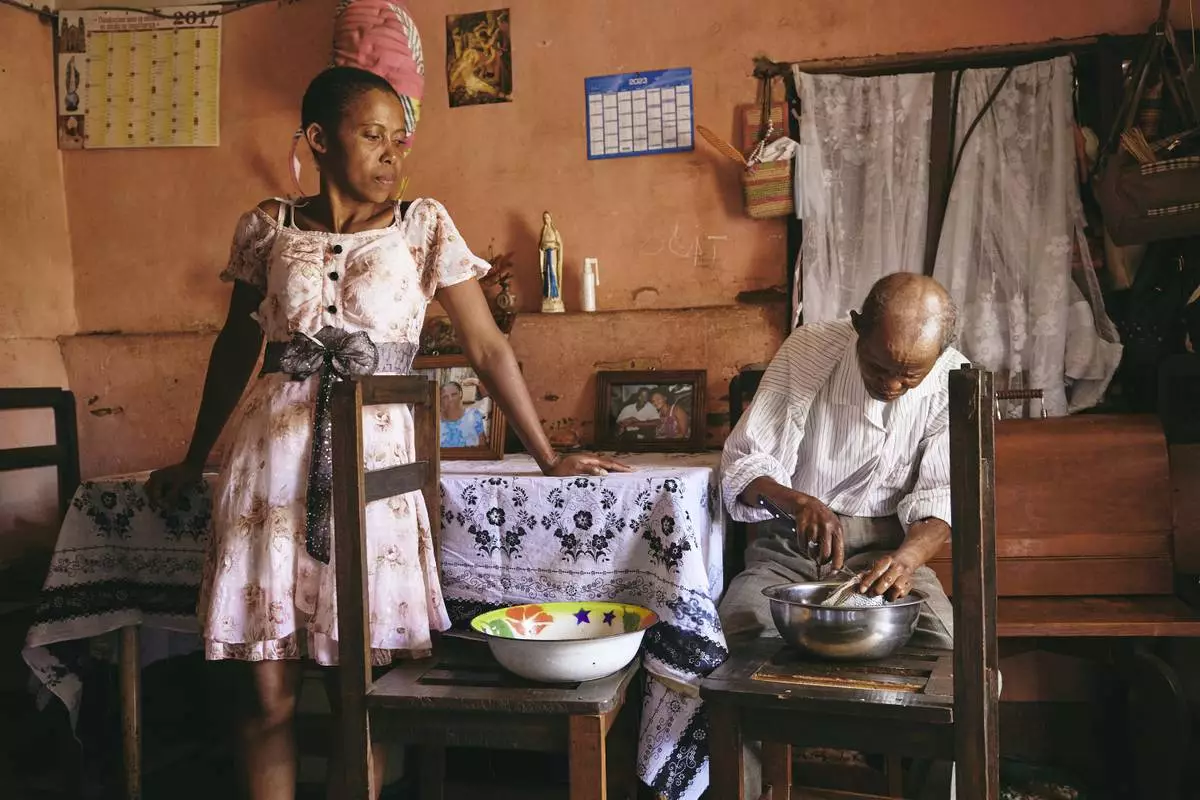
This image provided by World Press Photo and taken by Lee-Ann Olwage for GEO is part of a series titled Valim-babena which won the World Press Photo Story of the Year Award and shows Joeline (Fara) Rafaraniriana (41) watches her father, Dada Paul Rakotazandriny (91) clean fish at home on Sunday afternoon. A typical Sunday consists of the family attending church in the morning and spending time together in the afternoon. Fara works during the week and as the sole provider and carer for her daughter and father struggles to manage all her responsibilities in the absence of assistance by her siblings who live close by. Mandrosoa Ivato, Antananarivo, Madagascar. 12 March 2023. (Lee-Ann Olwage/Geo/World Press Photo via AP)
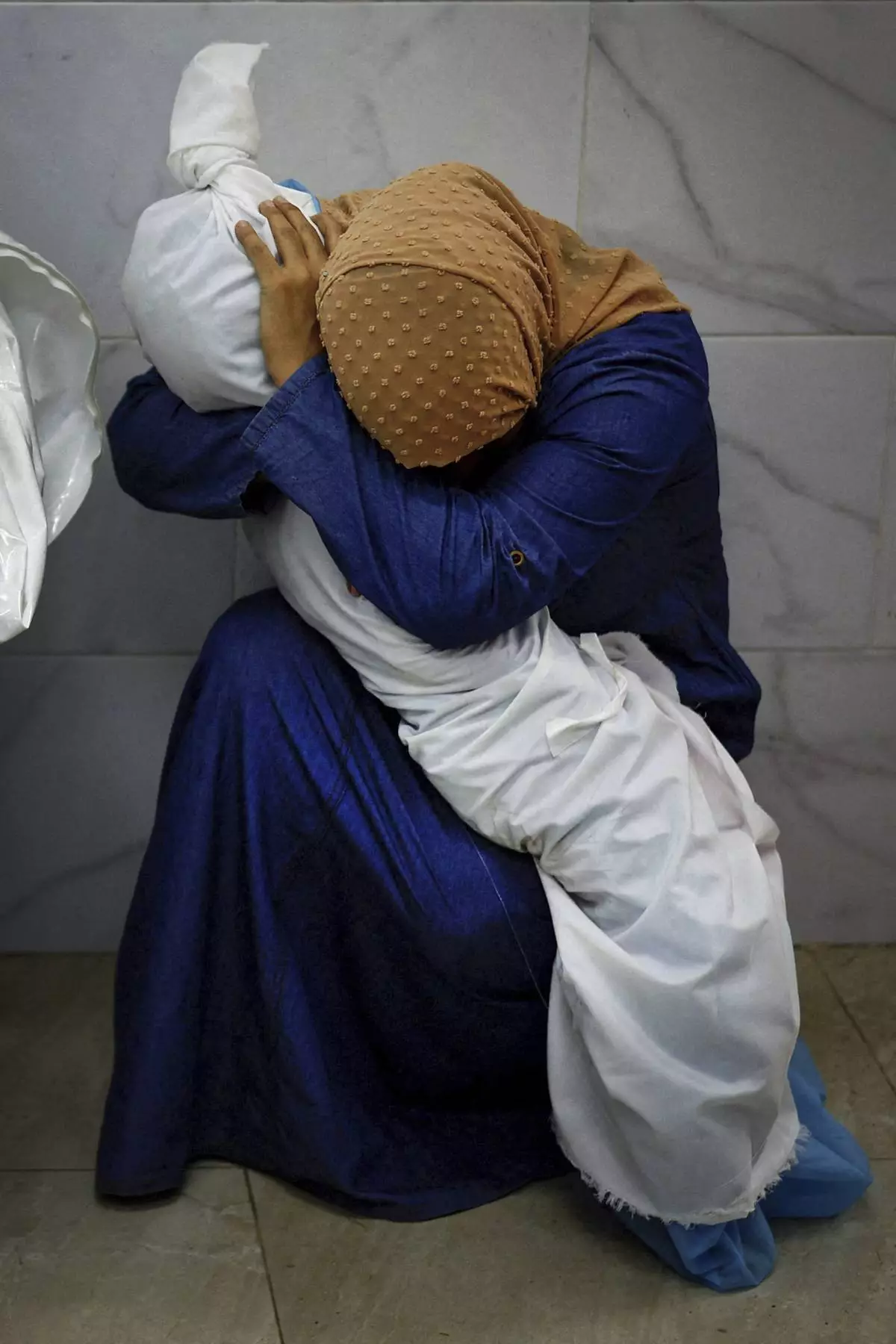
This image provided by World Press Photo and taken by Mohammed Salem of the Reuters news agency won the World Press Photo Award of the Year and shows Palestinian woman Inas Abu Maamar, 36, embracing the body of her 5-year-old niece Saly, who was killed in an Israeli strike, at Nasser hospital in Khan Younis in the southern Gaza Strip, October 17, 2023. (Mohammed Salem/Reuters/World Press Photo via AP)



















